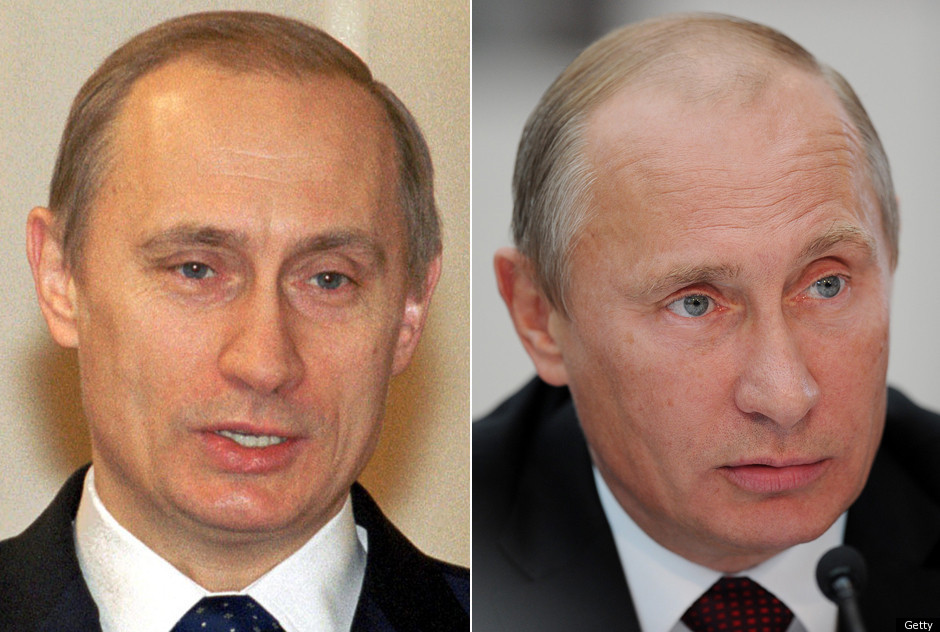by BORIS KAGARLITSKY
 Russian President Vladimir Putin in 2002 and 2011
Russian President Vladimir Putin in 2002 and 2011
PHOTO/Huffington Post
Russia’s presidential elections have become a confrontation as the authorities lose support and society gains political muscle. The behavior of the players in this drama is even more important than the numerous and often absurd electoral violations that tarnished the vote. Prime Minister and now President-elect Vladimir Putin offered no program, ideology or strategy whatsoever. The main idea of his campaign was that the people should love and obey their leader no matter what he does or says. It calls for the Russian people to exhibit irrational love for their national leader, a certain joyful submissiveness mixed with fear of the uncertainties that freedom and personal responsibility would bring.
Prominent members of the “artistic intelligentsia” — actors, writers, musicians, singers, dancers and circus trainers — expressed public support for Putin and his “opponents,” individuals who had been handpicked to lend the farce the semblance of a democratic contest. Meanwhile, other members of the intelligentsia indignantly accused their colleagues of selling out to the authorities.
Most of the artists and performers voicing their support for Putin had received numerous perks from the government, and it is no surprise that they oppose any change to the status quo. This is reminiscent of privileged members of the Soviet-era artistic intelligentsia, who were the first to curse and ridicule the state the moment it began to falter. In fact, many of the people who are accused of selling out today are the same ones who society previously criticized for their ingratitude toward the national leadership.
Unfortunately, these charges are warranted in both cases. The problem is not the position these people have taken, but the way that they have expressed it. The intellectual elite of the 1990s did not show their immorality by their censure of the Soviet authorities, but in the way that they felt no guilt over accepting perks while acting as if they had been fighting all their lives against their government patrons. The current complaint against them is that they lend their support to rulers who offer the country neither principles nor plans for its development. In both the past and present situations, the problem concerns morality, or the lack thereof, and not political views.
The Moscow Times for more
